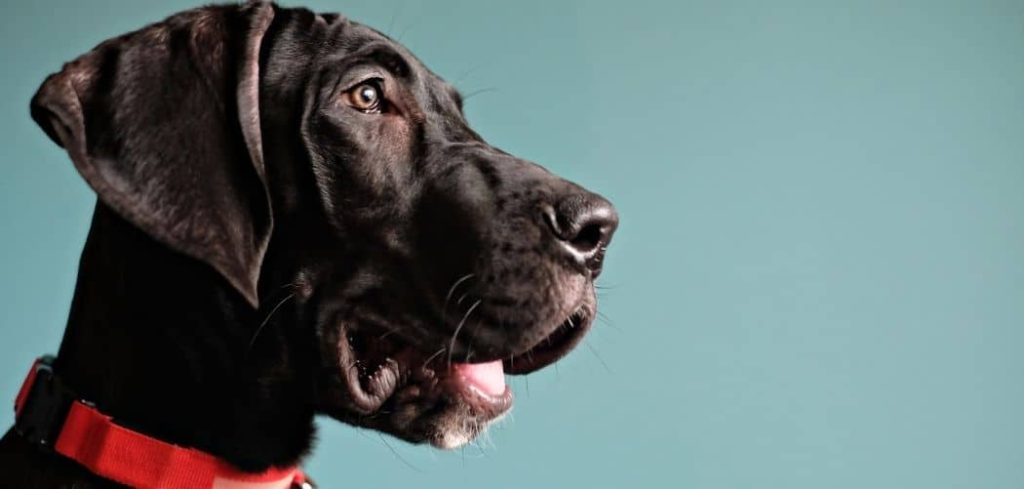When an old dog is not eating and coughing, it can indicate more than just a simple cold.
Appetite loss paired with coughing in senior dogs may signal respiratory infections or other serious medical conditions that require prompt attention.
We outline the common reasons why an old dog may not be eating and coughing, what you can do at home, and when to seek veterinary help.
Old Dog Not Eating and Coughing — Why It Happens
When old dog is not eating and coughing, it often points to underlying respiratory, cardiac, or systemic health issues. Chronic cough can be caused by infections such as kennel cough, pneumonia, or fungal infections. Heart disease, collapsing trachea, or lung tumors are also common in senior dogs and can affect appetite.
Also, medications or environmental irritants may worsen coughing and discourage eating.

Old Dog Not Eating and Coughing: Common Causes
Heart Disease
Senior dogs are prone to heart conditions like congestive heart failure, which can cause fluid buildup in the lungs and airways.
Coughing often becomes more noticeable at night or after activity, and dogs may struggle to breathe comfortably. Poor appetite accompanies this because respiratory distress makes eating tiring and uncomfortable.
Left untreated, heart disease can progress rapidly, leading to extreme weakness, fluid accumulation, and even life-threatening complications.
Read more: Old Dog Not Eating and Throwing Up Water (Understanding digestive concerns)
Collapsing Trachea
A collapsing trachea is a condition where the windpipe partially collapses, making breathing difficult.
Older small breed dogs are most affected. Coughing often sounds honking or raspy, and it may worsen with excitement, pulling on a leash, or eating. Loss of appetite occurs because swallowing food can be uncomfortable or stressful.
While not immediately life-threatening, chronic tracheal collapse can significantly affect quality of life and may require veterinary intervention or supportive care.
Respiratory Infections
Respiratory infections like kennel cough, pneumonia, or fungal lung infections can trigger coughing and reduce appetite.
Symptoms often include nasal discharge, fever, lethargy, and labored breathing. Older dogs are particularly vulnerable, as their immune systems are less effective at fighting infections.
Prompt veterinary evaluation is critical because untreated infections can lead to pneumonia or sepsis, especially in seniors.
Lung Tumors or Cancer
Cancer in the lungs can lead to chronic cough, difficulty breathing, and appetite loss.
Owners may notice coughing that doesn’t improve, shortness of breath, weight loss, or fatigue. Unfortunately, lung tumors are more common in older dogs, and by the time appetite loss occurs, the disease may be advanced.
Early detection can improve comfort and treatment options, making veterinary assessment essential.
Chronic Bronchitis
Chronic bronchitis is inflammation of the airways, leading to persistent coughing.
This condition can interfere with eating, especially if the dog feels short of breath or fatigued. Chronic bronchitis can also produce mucus or wheezing sounds, and symptoms often worsen with activity or changes in temperature.
While not curable, management can significantly improve quality of life for older dogs.
Heartworm Disease
Heartworm infection can affect the heart and lungs, causing coughing, lethargy, and reduced appetite.
Older dogs may not show early signs until the disease is advanced, at which point coughing and exercise intolerance become noticeable. Heartworm disease is preventable but requires veterinary testing and treatment if present.
Because it can cause severe heart and lung complications, prompt diagnosis is crucial for seniors.
What to Do If Your Old Dog Is Not Eating and Coughing
Ensure your dog rests in a calm, comfortable environment with minimal stress or activity.
Keep them hydrated, as coughing can dehydrate and irritate the throat further. You can offer small sips of water or ice cubes throughout the day.
Monitor their breathing carefully. If your dog struggles to breathe, open-mouth breathes, or shows blue gums, these are emergency signs.
Try feeding soft, easy-to-eat meals to encourage appetite, and avoid foods that require vigorous chewing or trigger coughing.
Maintain a clean living area, free from smoke, dust, or other irritants that could worsen respiratory symptoms.
When to Call or Visit Your Vet
Immediate veterinary attention is warranted if your dog:
Coughs persistently and refuses to eat for more than 24 hours.
Shows labored breathing, rapid panting, or open-mouth breathing at rest.
Has blue or pale gums, fainting, or extreme lethargy.
Exhibits coughing with blood or frothy discharge.
Even mild or intermittent coughing with appetite loss in senior dogs should prompt veterinary evaluation. Many respiratory or cardiac conditions are manageable if caught early, but delays can lead to rapid deterioration.
Read more: Old Dog Not Eating (Causes and what to do)
Key Takeaway
When an old dog is not eating and coughing, it’s often a sign of underlying illness, from heart and lung disease to infections or cancer.
At home, supportive care such as rest, hydration, and soft meals can help, but veterinary evaluation is essential for diagnosis and treatment.
Early detection and intervention can make a significant difference, ensuring your senior dog stays as comfortable and healthy as possible.
